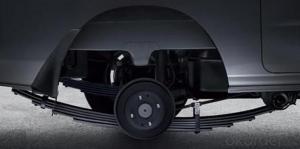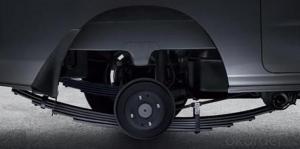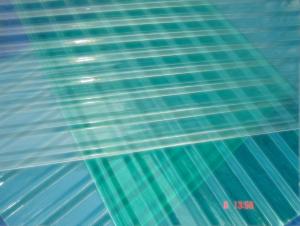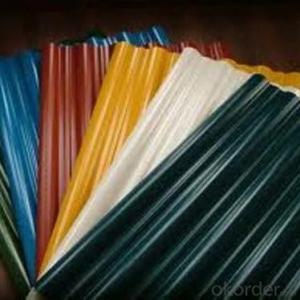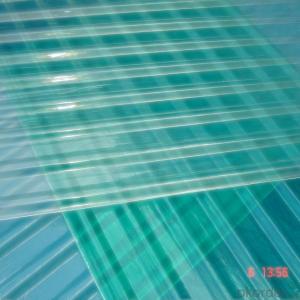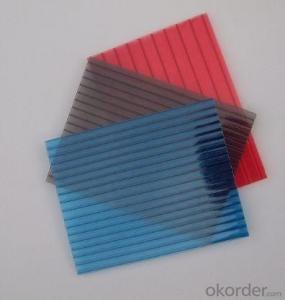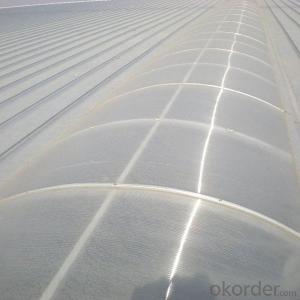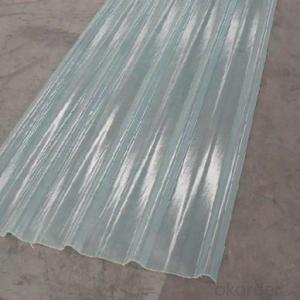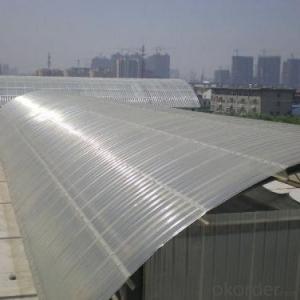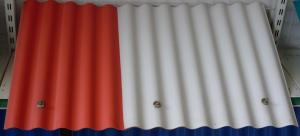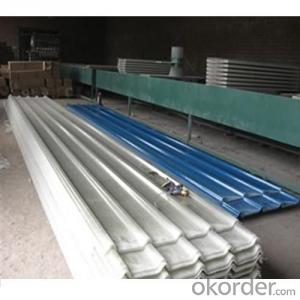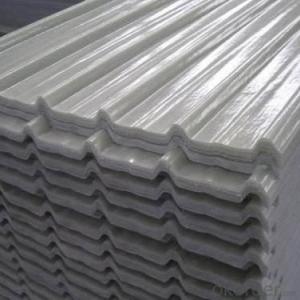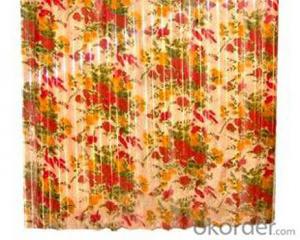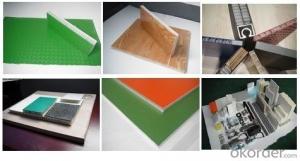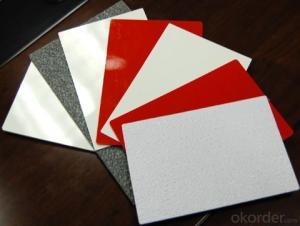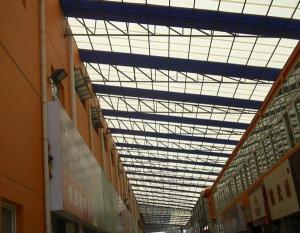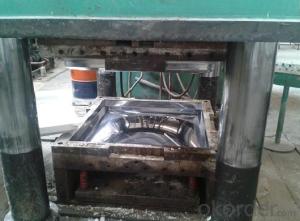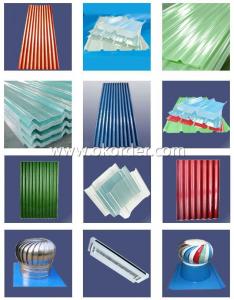SMC Pressed COMPOSITE LEAF SPRING Applied in Automobile
- Loading Port:
- Tianjin
- Payment Terms:
- TT or LC
- Min Order Qty:
- 1000 m²
- Supply Capability:
- 100000 m²/month
OKorder Service Pledge
OKorder Financial Service
You Might Also Like
Introduction
SMC and BMC are abbreviations of respectively Sheet Molding Compound and Bulk Molding Compound. SMC and BMC form a family of structural, fiber reinforces thermosetting resins. SMC and BMC are intermediate materials from which a large variety of products can be manufactured by compression molding or injection molding. Base materials of SMC and BMC are, generally spoken, unsaturated polyester resins, glass and mineral filler materials, such as chalk or aluminum trihydrate. The composition of the compounds can be adapted to the application where it is used for. Specific properties such as flame retardancy, surface quality and paintability can be achieved by adding specific, functional materials. SMC and BMC product are used in a very broad range of applications
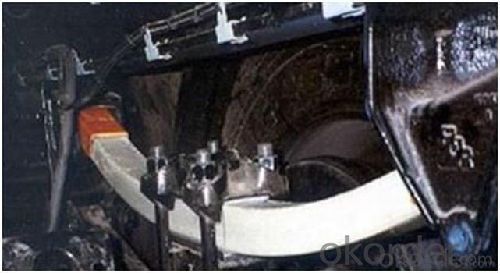
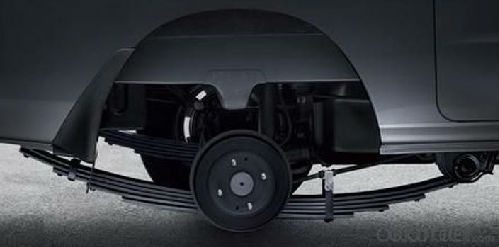
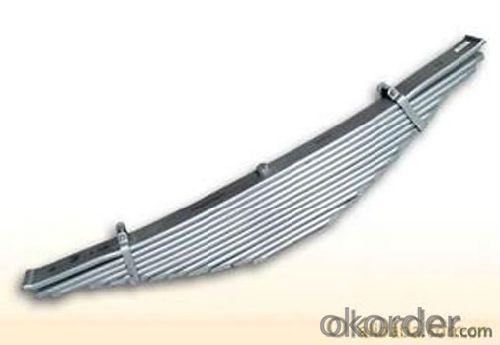
Product Description
1. Y27 Series Frame-type Hydraulic Press is a kind of multifunctional precision machine which has high speed.
2. Cartridge valve equipped for hydraulic control system, reliable, durable and less hydraulic shock, shorter connection pipeline and fewer release points.
3. Optimized design, the frame is entirely welded with steel plates, and treated to relive stress by tempering for high precision.
4. Centralized button control system, with adjustment, hand and semi-auto operation modes at operator’s choice (set-stroke single and set pressure single).
5. Four-angle and eight-side guide rail in high precision and with strong capacity against deflection, concentrated lubrication.
6. New type of oil cylinder sealing components marked by high reliability and long service life.
7. Sliding blocks operating in high speed, ensuring high efficiency.
8. The slide operating pressure, no-load quick travel and low-speed movement can be adjusted according to technological requirements.
9. Hydraulic cushion is fitted beneath the worktable; adequate knockout hole and hydraulic cushion are prepared on the plate of worktable with the operating modes including drawing, ejection and no ejection.
Application
1. It is suitable for the press fitting and stretch forming of metal and plastic products as well as the movements of coining and overprinting.
2. It mainly applies to the fields of machine tool, engineering machinery, bearings, washing machine, automobile parts, motor components and powder metallurgy.
3. It is suitable for the molding of plastic products, such as DMC and BMC.
4. The machine, with a high degree of automatization, is particularly suitable for the mass production of parts. And it can be used as assembly line with several such equipments.
Specification
Item | Unit | Y27-500 | |
Nominal Force | KN | 5000 | |
Return Force | KN | 900 | |
Ram Stroke | mm | 900 | |
Daylight | mm | 1400 | |
Cushion Force | KN | 2000 | |
Cushion Return force | KN | 780 | |
Cushion Stroke | mm | 350 | |
Ram Speed | Idle Stroke | mm/s | 150 |
Pressing | mm/s | 10-22 | |
Return | mm/s | 120 | |
Cushion Speed | Knock out | mm/s | 55 |
Return | mm/s | 140 | |
Table Size | LR | mm | 2200 |
FB | mm | 1600 | |
Cushion Size | LR | mm | 1720 |
FB | mm | 1120 | |
Overall Dimensions | LR | mm | 4700 |
FB | mm | 3100 | |
Height above the floor | mm | 5800 | |
Power Motor | KW | 2*30 | |
Total Weight(Approx) | KG | 57000 | |
FAQ
1.Which country do you mainly export to?
A: Our products are very popular in Mid East, India, South East Asia, Latin America, Africa.
2.Q: What’s the advantage of you compared with other suppliers experienced in foreign trade?
A: We have been specialized in FRP products for over decades years and approved by many domestic companies. Except for our quality and price, we’re also able to give you the best service.
- Q:Can FRP roofing panels be used in breweries or distilleries?
- Yes, FRP (Fiberglass Reinforced Plastic) roofing panels can be used in breweries or distilleries. FRP panels are known for their exceptional durability and resistance to corrosion, making them suitable for environments with high moisture levels and chemical exposure, such as breweries and distilleries. Additionally, FRP panels are lightweight, easy to install, and can provide excellent insulation properties, which can be crucial in maintaining a controlled environment for brewing or distilling processes. Overall, FRP roofing panels can be a reliable and cost-effective choice for these industries, offering long-lasting performance and protection against various environmental factors.
- Q:Are FRP roofing panels resistant to impact from falling debris?
- FRP roofing panels, made of fiberglass reinforced plastic, are generally resistant to impact caused by falling debris. These panels are widely recognized for their durability and strength, enabling them to withstand different types of impact, including falling debris. Their composition, consisting of a layer of fiberglass reinforced with plastic, grants them high tensile strength and impact resistance. Moreover, FRP panels are often designed to meet industry standards and regulations, ensuring their ability to withstand impact and safeguard the underlying structure. However, the level of impact resistance may vary depending on the thickness and quality of the FRP panels employed. It is always advisable to consult manufacturers or experts to determine the most suitable FRP panel option for specific applications and concerns related to falling debris.
- Q:What is the average lifespan of the gel coat on FRP roofing panels?
- The average lifespan of the gel coat on FRP roofing panels can vary depending on factors such as environmental conditions, maintenance, and quality of the gel coat. However, on average, the gel coat can last anywhere from 10 to 20 years.
- Q:Can FRP roofing panels be used for awnings or canopies?
- FRP roofing panels are suitable for the construction of awnings or canopies. These panels are recognized for their durability, strength, and ability to withstand harsh weather conditions, making them an ideal option for outdoor purposes such as awnings and canopies. Their lightweight nature and simple installation process make them highly sought after in both residential and commercial environments. Furthermore, FRP panels offer a range of colors and designs, enabling customization and enhancing visual appeal. In summary, FRP roofing panels deliver a dependable and enduring solution for awnings and canopies.
- Q:Do FRP roofing panels require any special tools for installation?
- Yes, FRP roofing panels typically require special tools for installation. Some common tools include a power drill, circular saw, screwdriver, tape measure, and safety equipment such as gloves and goggles. These tools are necessary to ensure proper fastening, cutting, and handling of the panels during installation.
- Q:Do FRP roofing panels require special maintenance?
- Yes, FRP roofing panels require special maintenance. Regular cleaning and inspection are essential to prevent the buildup of dirt, debris, and algae on the surface. Additionally, it is important to check for any signs of damage, such as cracks or leaks, and address them promptly to ensure the longevity and performance of the panels.
- Q:Can FRP roofing panels be installed on parking garages or carports?
- FRP roofing panels are capable of being installed on parking garages or carports. Their durability, strength, and resistance to corrosion are well-known, which makes them a perfect option for areas where vehicles are parked. Not only are they lightweight but also sturdy, which simplifies installation and reduces costs. Moreover, their UV resistance guarantees that they will not fade or deteriorate when exposed to sunlight for an extended period. In summary, FRP roofing panels offer enduring protection for parking garages or carports while maintaining an attractive look.
- Q:Can FRP roofing panels be used for green roofs?
- FRP roofing panels are indeed suitable for green roofs, as they are specifically designed to accommodate the growth of plants and vegetation. With their lightweight, durable, and highly resistant properties against water and weathering, FRP panels make an ideal foundation for green roof applications. Moreover, these panels can be customized to include specialized features such as drainage systems or built-in insulation, further augmenting their suitability for green roof installations. In summary, FRP roofing panels provide a dependable and enduring solution for constructing green roofs.
- Q:What is the expected lifespan of FRP roofing panels?
- The expected lifespan of FRP roofing panels can vary depending on various factors such as the quality of the panels, the installation process, and the environmental conditions in which they are exposed to. However, on average, FRP roofing panels can have a lifespan of around 20 to 30 years. FRP, also known as fiberglass reinforced plastic, is a durable and lightweight material that is resistant to corrosion, UV radiation, and extreme weather conditions. This makes it a popular choice for roofing applications, especially in areas with harsh climates. Proper installation and regular maintenance are crucial for maximizing the lifespan of FRP roofing panels. Regular inspections and cleaning can help prevent the accumulation of debris, which can deteriorate the panels over time. Additionally, applying a protective coating or sealant can further enhance the longevity of the panels by providing an extra layer of protection against wear and tear. It is important to note that the lifespan of FRP roofing panels can also be influenced by the specific brand or manufacturer. Some manufacturers may offer panels with extended warranties, indicating their confidence in the longevity of their products. Therefore, it is advisable to consult with a reputable supplier or manufacturer to determine the expected lifespan of specific FRP roofing panels before making a purchase.
- Q:Can FRP roofing panels be used for noise barriers?
- Yes, FRP (Fiberglass Reinforced Plastic) roofing panels can be used for noise barriers. FRP panels have excellent sound absorption properties, making them an effective material for reducing noise levels. When installed as a noise barrier, FRP panels can help block and absorb sound waves, reducing the overall noise pollution. Additionally, FRP panels are lightweight, durable, and resistant to corrosion, making them a suitable choice for outdoor applications. However, it is important to consider the specific requirements and regulations for noise barriers in your area, as there may be additional factors to consider such as height, thickness, and placement to ensure optimal noise reduction.
1. Manufacturer Overview |
|
|---|---|
| Location | |
| Year Established | |
| Annual Output Value | |
| Main Markets | |
| Company Certifications | |
2. Manufacturer Certificates |
|
|---|---|
| a) Certification Name | |
| Range | |
| Reference | |
| Validity Period | |
3. Manufacturer Capability |
|
|---|---|
| a)Trade Capacity | |
| Nearest Port | |
| Export Percentage | |
| No.of Employees in Trade Department | |
| Language Spoken: | |
| b)Factory Information | |
| Factory Size: | |
| No. of Production Lines | |
| Contract Manufacturing | |
| Product Price Range | |
Send your message to us
SMC Pressed COMPOSITE LEAF SPRING Applied in Automobile
- Loading Port:
- Tianjin
- Payment Terms:
- TT or LC
- Min Order Qty:
- 1000 m²
- Supply Capability:
- 100000 m²/month
OKorder Service Pledge
OKorder Financial Service
Similar products
New products
Hot products
Related keywords
